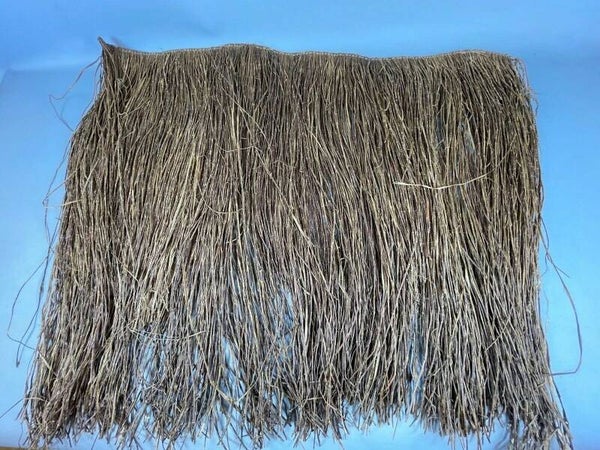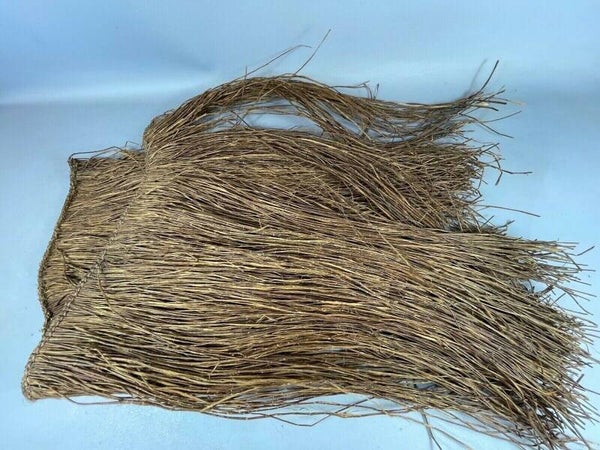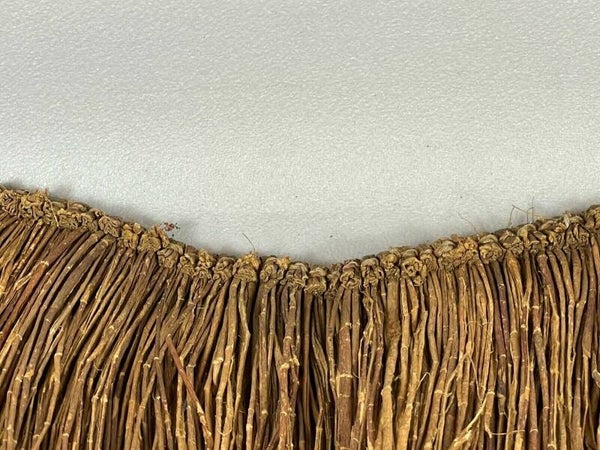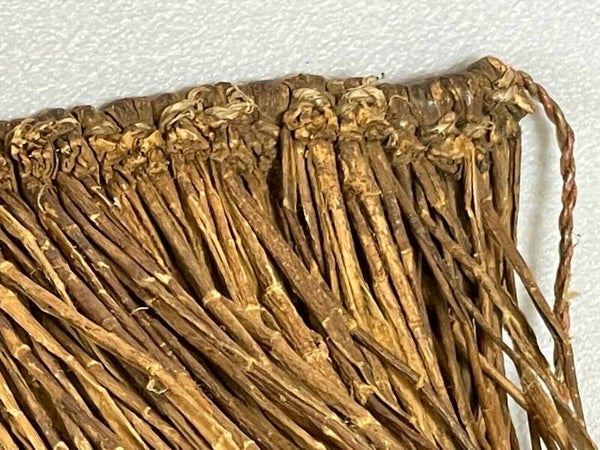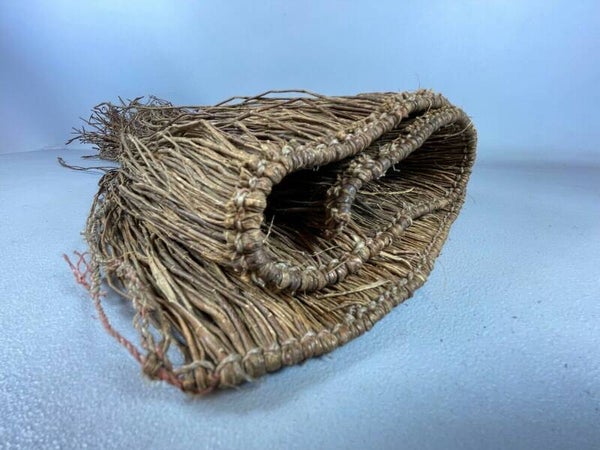220511 - Rare Old Ethiopian Tribal used Traditional Ari skirt - Ethiopia.
€125.00
Ethiopia: Extremly Rare Old Tribal used African Ethiopian Authentic Ari skirt apron.
Very good condition - Dimensions: 70 cm wide and 55 cm high.
Very rare young woman's skirt made of small strips of tree bark and sewn together into a beautiful skirt. It belonged to a young Ari woman and this item was purchased in the town of Jinka in the Omo Valley of Southern Ethiopia.
Collected in the 1990s.
Aari or Ari are a tribal Omotic people indigenous to Omo Valley of Ethiopia. According to 2007 census there are 289,835 ethnic Aari in Ethiopia, which makes up around 0.29% of the country's total population. Nearly all Aari speak the South Omotic Aari language, though more than half of them are multilingual and can also speak other languages such as Amharic.
Before being conquered by Ethiopian forces during the 19th century Aari people lived under independent chiefdoms. The divine ruler of the Aari tribal societies were called baabi. Between 1900s and 1930s Aari lived as serfs under the Ethiopian Empire and the land was settled by northern soldier populations. Aari is partially Christianized through Western missionary work (such as those by SIM) beginning in the mid 20th century. The vast majority of the Christianized Ari are Protestants.
The Ari peoples of Ethiopia are comрrised of different occupational groups and their society is socially divided and stratified according to each Aari individual's respective occupation. The lower castes of the society is composed of potters, tanners and blacksmiths and collectively named as mana in the Aari language. Blacksmiths (faka mana)i who also do woodworking are marginalized and occupy an inferior position to tanners and potters (tila mana). Kantsa is the name given to the agriculturalist caste which holds a privileged position in the society. Intermarriage between mana and katsa is forbidden and considered as taboo according to Aari customs. After the introduction of Christianity the social division between Christian Aari belonging to differing castes have reported to become less important.
